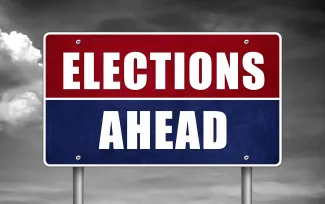
AI could undermine trust ahead of 2024 election
Click play to listen to this article.
(Oregon News Service) The rise of artificial intelligence is raising alarm bells for election officials in Oregon and across the country.
Before the New Hampshire primary, a robocall imitating President Joe Biden called voters and told them not to vote.
It's seen as a potential preview of what voters could be in for as the 2024 general election approaches.
Rachel Orey is the senior associate director of the Bipartisan Policy Center's elections project.
She said while incidences like the one in New Hampshire might be isolated, AI could have other consequences.

"Our bigger concern is what's known as a liar's dividend," said Orey, "that even when there are instances of generative AI being used to target voters with false information, they feed into this bigger risk that the presence of false information makes voters trust any information less."
Orey said the past few years have seen a near constant assault on accurate voting information, which has made it challenging for good information to reach voters.
Oregon's Republican and Democratic primary elections are on May 21.
Orey said AI could supercharge the misinformation campaigns that have existed for years. However, election officials across the country have a leg up going into the 2024 vote.
"Election officials and voting advocates around the country are sort of well prepared to mitigate and respond to increases in misinformation," said Orey, "because they spent the last couple of years flexing that muscle and learning how to respond to misinformation and election denial campaigns."
Orey said election officials should have a plan ready to respond to AI misinformation campaigns, which might include contacting affected voters.
She said there likely aren't any regulatory options available at the moment to stop these operations.
"Technology is maybe growing faster than the regulatory tools we have available," said Orey. "So, at present it seems difficult to find the policy that the government could adopt and make these robocalls impossible."
Orey said another concern is targeted campaigns that use a voter's personal information to persuade them not to vote, although there aren't any documented instances of this happening yet.
Support for this reporting was provided by the Carnegie Corporation of New York.
















